ARTICLE AD BOX
Sam Gruet
Technology Reporter
Reporting fromVancouver

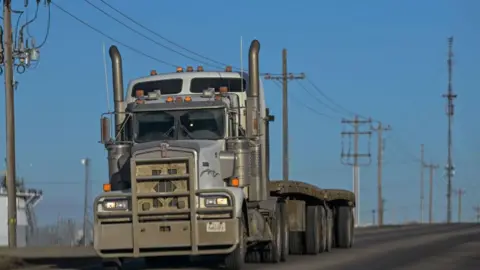 Getty Images
Getty Images
Digital trucking apps look to minimise trucks without cargo
When Jared first started out in trucking more than two decades ago, he didn't anticipate he'd be on tour with a country music star, hauling guitars, amps, and other pieces of on-stage equipment.
"It just happened, right place, right time," the Canadian driver, who prefers not to use his surname, explains from behind the wheel of his towering lorry.
"I've done 5,000 miles in a month and a half, but there's a lot of breaks this year."
But during time off between driving to shows in New Jersey, New York, Toronto and Nashville, Jared will be scanning multiple screens in his cabin – a laptop, tablet and two smart phones – to secure more work. All made possible by new technology.
It's a world away from his early career, when he was transporting fruit and wine, he explains.
"Back in the day, you had to sit by a payphone if you're on the road and start calling people you've worked with and then you'd have a pager.
"Today, you just turn on your devices and scan through possible work. It's all digital and you get paid instantly. It's much better for business."
The change has been driven by "Uberised" platforms, digitally matching truckers with companies which need to move freight. The phrase was coined due to the similarity to the ride hailing app.
While Jared agrees it has made things easier, the truck driver says it has led to wages falling.
"During Covid, the average was $3 (£2.24) per mile, today on some loads from Toronto to Los Angeles that is $1.10 per mile."
Not to mention, he says, the rising cost of fuel.
In Canada, eight major platforms including Uber Freight, have emerged to digitise the market for freight.
Like the taxi app, they are capitalising on a fragmented market dominated by smaller players, with 2023 data suggesting that more than eight in 10 trucking and freight firms in Canada employ fewer than five people.
Christopher Monette, from Teamsters Canada, told the BBC that the Canadian Trade Union representing over 130,000 members including truckers, has "deep concerns around the efforts to 'Uberise' the trucking sector".
"Wages in Canada have remained largely stagnant for the past 25 years, and the rise of gig-style work stands to make things even worse," he argues, adding that "larger, often unionised carriers who operate responsibly by investing in safety, training, and decent working conditions are most at risk".
"Truckers don't need another app. We need stronger protections and bigger paycheques."
When asked, Uber Freight did not directly address the issue of wages and prices.
Instead, a spokesperson said: "Flexibility, transparency, and choice are built directly into our platform.
"Carriers can search for loads based on their preferences, such as lane, equipment type, commodity, and schedule, and either book instantly at a listed price or submit a bid for a rate that better aligns with their needs.
In the trucking industry a lane refers to a regularly travelled route.
"Our platform also uses real-time market data and AI-powered recommendations to help carriers make the most of their time on the road," the spokesperson said.


Eric Beckwitt's firm is using AI to speed up complicated bookings
Vancouver-based Freightera is among the biggest players when it comes to digital trucking services in Canada.
Co-founder Eric Beckwitt meets me at a point overlooking the city's sprawling port, where towering orange cranes move brightly coloured containers against a backdrop of snow-topped mountains.
When he started the company in 2014, there were no trucking apps for Canadian companies.
The service he has developed allows drivers and customers to search 20 billion regular routes for hauling freight which, he says, can be done in "five or 10 seconds".
He points out that, unlike other platforms, Freightera does not set prices.
"At Freightera, carriers set their own price. We ask them what they need to be healthy and profitable on each lane, and they set the price."
Mr Beckwitt says the service has been good for trucking. Before services like his came along, finding work, or even the best route, was like "finding a needle in a haystack", the Freightera boss explains.
"Carriers really appreciate Freightera's reliable demand for service, which has grown every year consistently, right through Covid, the inflation afterwards and the current freight recession, one of the largest running freight downtowns," he says.
The company is now developing AI to speed up complicated bookings: "Digging through the noisy, messy documents, fine print and inconsistent rules - things like missing paperwork, unexpected charges, or a routing issue that could throw off delivery."
Mr Beckwitt also dreams of a completely automated freight industry, "40 years from now", where AI would control global freight.
"Automatically assigning cargo to networks with the lowest capacity and allowing complete transparency, tracking and even trading while they're in travel".

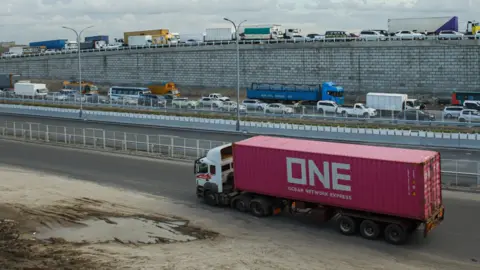 Getty Images
Getty Images
Around three quarters of Kenyan freight is moved by trucks
Digital trucking services are employed all over the world.
Kenya heavily relies on road freight, so has embraced the new tech.
"Over 75% of inland freight is moved by road and in many cases it's the only mode of transportation available," says Jean-Claude Homawoo, co-founder of Africa's biggest digitised freight platform, LORI.
Since launching in 2016, LORI has grown its network to 20,000 trucks. It doesn't own any vehicles but manages them digitally, trying to ensure that trucks don't stand idle or return home empty.
In that time, he says, "there are certain routes like Mombasa to Kampala in Uganda, where we have loaded so many trucks that the price of a full truckload has fallen".
If truckers are finding work that requires less driving around without cargo, then they should be using less fuel.
And that could be helpful in cutting the industry's contribution to carbon dioxide (CO2) emissions.
Trucking accounts for more than half of CO2 emissions within trade-related transport, according to a 2022 McKinsey report.
Mr Beckwitt is convinced that tech like his, is the answer.
"It's just so much more energy-efficient and so much more cost-efficient," he adds.

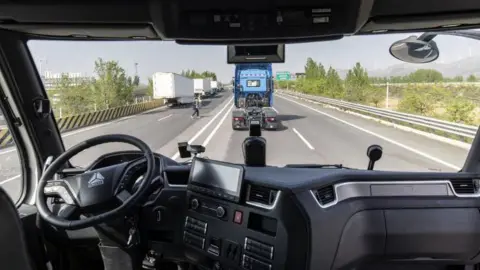 Getty Images
Getty Images
Driverless trucks are being trialled across China
One form of AI might be helping drivers find work, but another could, one day, put them out of work.
In April, a commercial driverless truck took to an American highway for the first time ever, operated by US-based tech firm Aurora.
In China, fleets of driverless lorries are currently operating on test routes around the country.
"The technology is there," explains Freightera's Mr Beckwitt. "It's just whether we trust it to be let loose on the roads. And there's obviously bureaucratic hurdles in the way and red tape."
For trucker Jared though, self-driving freight is still a distant prospect.
"Transportation has been around for hundreds of years. It's not going to end with people worrying about self-driving trucks, that's not going to happen any time soon."
More Technology of Business

 5 hours ago
12
5 hours ago
12

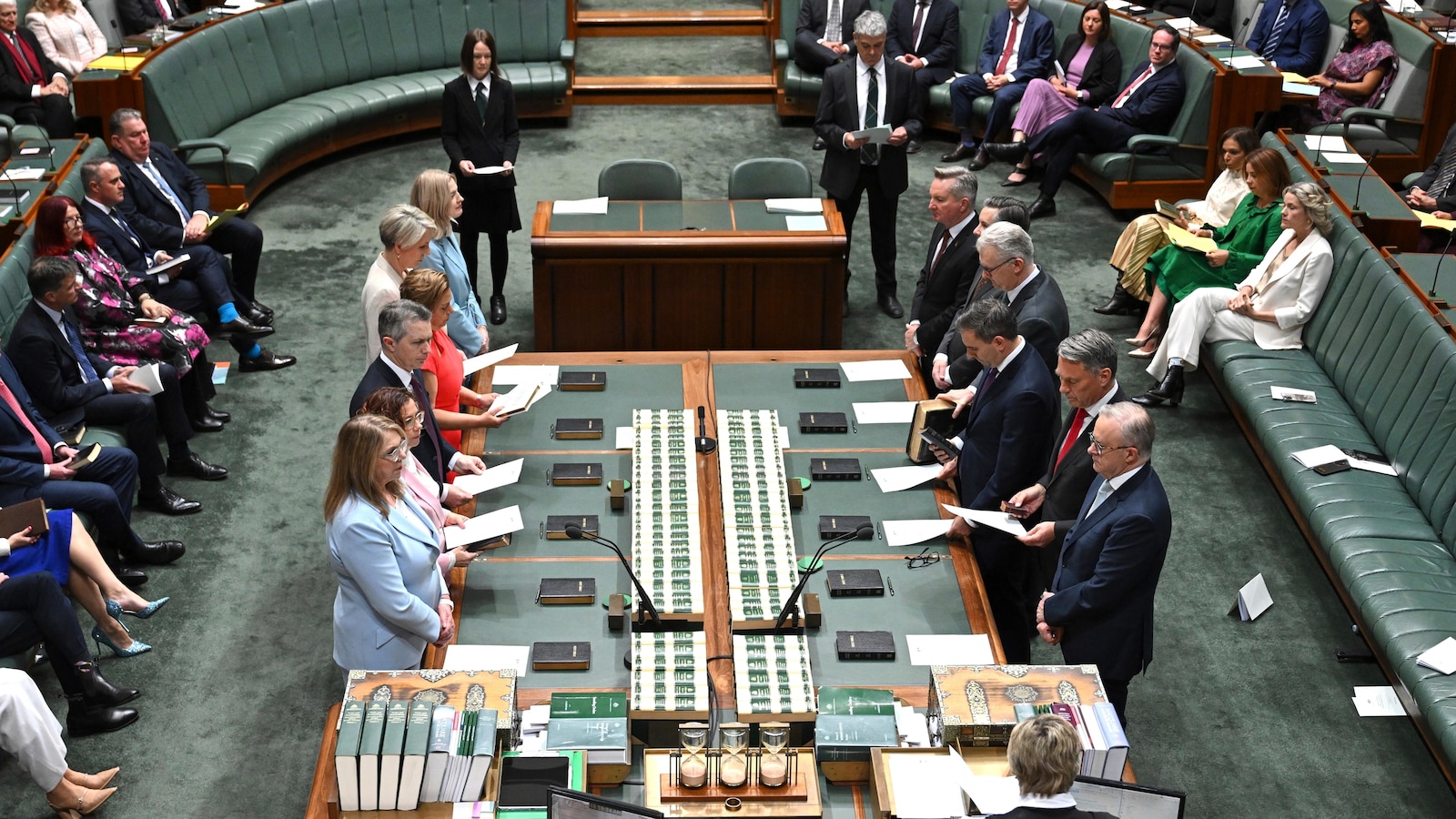
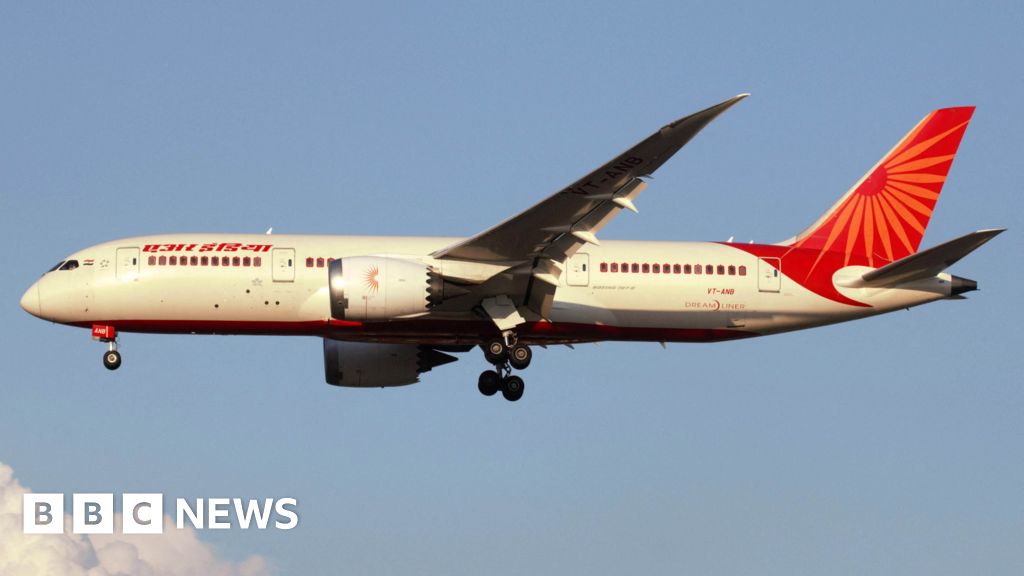





 English (US) ·
English (US) ·